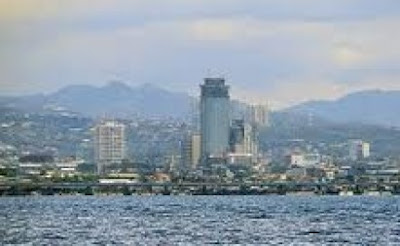
MANILA, Philippines - Bank of the Philippine Islands (BPI) plans to grant more loans to the agribusiness sector as the country's third-largest bank works to strengthen its partnership with the World Bank’s private-sector lending arm.
In a briefing on Monday, Alfonso L Salcedo, BPI corporate banking head, said the lender is aiming for a bigger presence in the agribusiness space, by extending loans to farmers.
"One thing that encourages me is we don't have to be limited to the renewable energy and sustainable energy space for agri. It could be anything such as agricultural loan," he said.
"Looking back, before we started this, we also don't have the expertise, we don't have the level of comfort, lending to the agri space at the lower level. So there is possible affiliation or expansion of this agreement, could allow to get into that in a big way," Salcedo said.
World Bank arm International Finance Corp. (IFC) and BPI had been working in the sustainable energy finance sector since January 2008 and renewed the partnership twice, first in September 2009 and then in January this year.
The two lenders had a risk-sharing agreement signed in December 2009 in which IFC guaranteed up to 50 percent of the qualified loans worth P2 billion. A new risk-sharing facility was signed to hike the total amount to P5 billion.
According to Jesse Ang, IFC country representative, agribusiness is an area that the private sector can work on to put the Philippines back on the global map when it comes to agricultural productivity. He said the country used to be an exporter of rice before becoming the world’s largest importer.
However, there are certain issues that the Philippines must solve first before it can achieve this.
"One is land reform that has been instituted but the problem with agrarian reform is that we just distribute land and we need to do more than that. We need to support farmers with knowledge, with financing and we need to look at successful land reform programs in other countries," Ang said.
"I think banks are being asked to lend to agriculture and agrarian reform - the Agri-Agra Law. And it's bit of a challenge for them and they're paying penalties essentially for not lending more in this space. What we'd like to do is if we could look into the agribusiness space, primarily on the advisory side," he said.
Ang said the IFC can assist banks like BPI through its agriculture specialists, who can look at farmer productivity and through its agricultural finance people to help private lenders' loan officers deal with farmer-borrowers.
"We need to change the focus to inclusive growth, not just growth itself and agribusiness is a logical area because one of the key reasons we don't grow is that we don't have enough jobs for unskilled labor. Most of our unskilled labor is in the agriculture sector. So that's why we want to look into this sector and we're appreciative of BPI's willingness to get into this sector as well," the IFC official said.
In the 1980s, BPI had Agri Bank, which became the precursor of BPI Direct, the lender’s Internet arm, said Aurelio Montinola III, the bank’s president.
The venture did not prosper then because interest rates in the 1980s were "so high,” he said. "And you know how it is in agri, the weather makes a big difference," Montinola said.
The bank is lending to cooperatives but it has yet to deal with farmers and other agricultural producers.
He said that once BPI gets over the technicalities of agribusiness lending, it can tap the IFC for a partnership similar to its SEF risk-sharing agreement.
BPI's SEF program won a $1.2-million grant from the G-20 SME Finance Challenge Award for its "innovative" financing scheme focused on energy projects of small and medium enterprises (SMEs).
It was the only East Asian winner among the 14 awardees in an online competition joined by 200 entries worldwide.
BPI said the grant would go to its internal capacity building, specifically of loan officers.. It can also be extended to the BPI Family KaNegosyo Loan program for SMEs and BPI Leasing to target energy efficiency companies.
source: interaksyon.com






